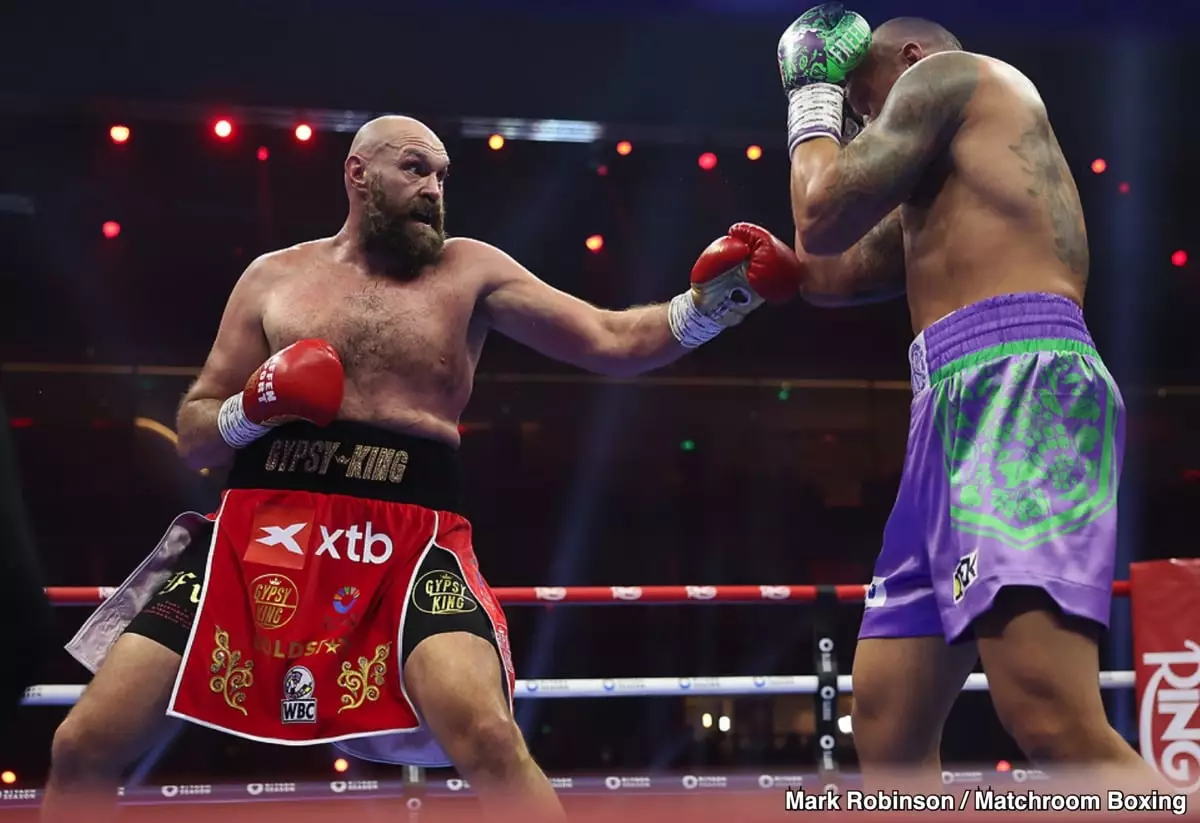In the world of professional boxing, the anticipation of matchups often engenders a palpable sense of excitement. However, the impending clash between Tyson Fury and Anthony Joshua—termed the ‘Battle of Britain’—sits on a precarious perch of disillusionment. Set to unfold in the first half of 2025, the fight seems to promise little beyond monetary gain, overshadowing the sport’s integrity and spirit.
Once heralded as titans of the heavyweight division, both Fury and Joshua have succumbed to the unforgiving reality that time—and relentless competition—has caught up to them. Their most recent outings resulted in disheartening defeats, tarnishing their legacies and leaving fans wondering if the boxing world is witnessing the decline of its once-great champions. Fury’s stunning inability to mount a competitive performance against Oleksandr Usyk raises questions about his dedication and fitness; one could argue he appears disinterested, having reached a level of financial security that diminishes his competitive fire.
Joshua, burdened by back-to-back losses to Usyk and a recent knockout by Daniel Dubois, is also clutching at the remnants of his former glory. Critics are quick to label this upcoming match as a lackluster affair steeped in nostalgia, devoid of the gravitas that typically defines elite boxing contests. The distinctive allure of ‘bragging rights’ takes precedence over the prestige that competition once held, reducing the bout to a mere spectacle for those eager for an evening of entertainment rather than a showdown of athletic prowess.
A Financial Bonanza
It is essential to acknowledge the elephant in the room—the financial implications of the Fury-Joshua bout. With their marketability still robust despite their declining performances, both fighters stand to reap staggering financial rewards. The potential earnings dwarf those of many other athletes, and for promoters Frank Warren and Eddie Hearn, this matchup is a proverbial goldmine. However, the question arises: at what cost to the sport?
Simon Jordan’s critical appraisal surfaces a pivotal point: should boxing fans sacrifice the integrity and meaningfulness of bouts in exchange for yet another paycheck for aging fighters? The idea that the sport is drifting towards celebrity entertainment rather than legitimate competition is becoming increasingly palpable. While boxing fans eagerly anticipate the spectacle, they must grapple with the reality of what such a match signifies in the grander tradition of the sport.
Rather than indulging in this ill-conceived ‘Battle of Britain,’ there is an argument to be made for ensuring that both fighters earn their keep by first confronting credible contenders. What if Fury were to face off against formidable challengers like Martin Bakole or Daniel Dubois? Alternatively, Joshua could rekindle his ambitions against rising stars like Agit Kabayel or the undefeated Bakhodir Jalalov. This approach would serve not just the fighters and promoters but could also ignite renewed interest from a fan base that craves meaningful matchups with palpable stakes.
Imagine a scenario where both Fury and Joshua cleared their respective hurdles, restoring credibility and suspense to a historic matchup that once promised thrilling showdowns. This enforces the soul of boxing—where glory is earned rather than awarded by mere circumstance and marketability.
The stage is set for a fight that, despite the excitement it may generate, holds little significance in terms of competitive merit. It is a stark reminder of the current ethos in boxing, where financial gain often overshadows authentic sporting achievement. If promoters, fighters, and fans alike do not advocate for encounters resonating with substance, then boxing could eventually devolve into a mere entertainment vessel, stripped of its noble nuances.
As the clock ticks toward the 2025 showdown, it remains vital for boxing enthusiasts to advocate for a sport grounded in meaningful competition—from aspiring contenders to aging champions. The Fury-Joshua matchup may seem inevitable; however, it is incumbent upon the boxing community to demand bouts that encapsulate the spirit of competition rather than the allure of a financial payday. The future of British boxing depends on it.

